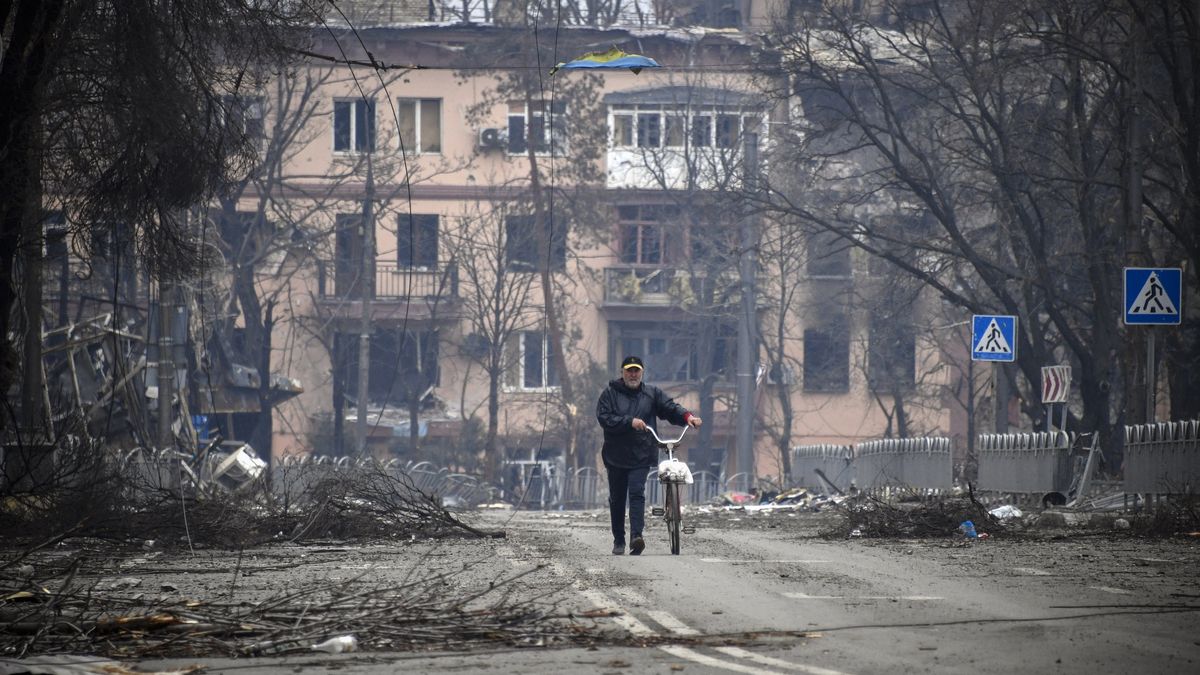“Five powerful missile attacks in one go on the civil infrastructure of the ancient European city of Lviv,” Mikhailo Podoliak, adviser to President Volodimir Zelensky, announced on Twitter.
According to regional governor Maksym Kozitsky, at least six people were killed and eight were injured in this attack that “severely damaged” military infrastructure.
A resident of southwestern Lviv told AFP he saw plumes of smoke behind residential buildings.
Located far from the front lines, near the border with Poland, Lviv has become a city of refuge for displaced people and is home to several Western embassies, moved from the capital, kyiv, since the start of the war on February 24.
Rarely has Lviv been the target of bombing, unlike the east of the country, where the attacks are currently concentrated.
Zelensky declared Sunday night that “Russian troops are preparing for an offensive in the east of our country in the near future. They want to literally finish off and destroy Donbas” in the east.
“Just as the Russian military destroys Mariupol, they want to raze other cities and other communities in the Donetsk and Lugansk provinces” in Donbas, the president insisted. “We do everything possible to secure the defense.”
Moscow appears determined to fully seize Mariupol, where the last fighters, entrenched in the Azovstal metallurgical complex, ignored Moscow’s ultimatum to cease fire and evacuate.
“Sabotage the orders of the occupiers. Do not cooperate with them (…) Resist,” said Zelenski, who described the situation in the city as “inhumane” and again called on the West to provide heavy weapons to his country.
The Ukrainian president also said he invited Emmanuel Macron to visit his country to see evidence of “genocide” committed by Russian forces, a term the French president has preferred not to use.
Mariupol has become the symbol of Ukraine’s fierce resistance to the Russian army.
“The city has not yet fallen,” Prime Minister Denys Shmyhal said.
“We still have military forces, soldiers, they will fight to the end,” he told the US network ABC.
A Mariupol police official, Mijailo Vershynin, said on Sunday that “many civilians, including women, children, babies and elderly people” were in the complex.
“These people protect themselves from the bombings because there is a refuge there that gives them the possibility of surviving for a while,” he said in a recording on YouTube.
“They don’t trust the Russians. They have seen what is happening in the city and that is why they are inside the factory,” he added.
Mariúpol, with 440,000 inhabitants before the war, is a key objective for Moscow and the last obstacle to guarantee its control in the maritime strip that goes from the pro-Russian separatist territories of Donbas to the Crimean peninsula, annexed by Moscow in 2014.
The UN World Food Program (WFP) noted that more than 100,000 civilians in Mariupol are on the verge of starvation and without water or heating.
In the east, shelling hit a neighborhood in the northeast of the city of Kramatorsk on Sunday night, causing no damage.
An AFP journalist saw a crater in a small piece of land near a closed hotel and a decommissioned factory.
On Sunday, also in Kramatorsk, two explosions were heard, but no houses were affected, AFP found. The shelling was probably aimed at an old industrial plant, which could be occupied by the Ukrainian army.
The governor of Lugansk, Sergei Gaiday, considered that “this week will be difficult” and has asked civilians to leave the area.
“It could be the last chance we have to save them” by leaving the combat zones, he wrote on Facebook.
But this Monday, the Ukrainian authorities announced that, for the second consecutive day, humanitarian corridors will not be enabled for the evacuation of civilians from the combat zones, and accused Russia of “blocking” and bombing the convoys.
The negotiations with the Russian army are “long and complex”, especially with regard to the city of Mariupol and other locations where fighting is taking place, Ukrainian Deputy Prime Minister Iryna Vereshchuk said on Telegram.
In the northeast, in Kharkiv, Ukraine’s second largest city, at least five people were killed and 20 wounded in a series of attacks, according to regional governor Oleg Sinegubov.
“Only in these last four days, 18 people have died and 106 were injured” in the bombings in this city, Zelensky declared for his part.
AFP journalists on the scene heard two shellings and saw five fires in the residential neighborhoods of the city center.
“The whole house rumbled and shook,” Svitlana Pelelygina, 71, told AFP as she surveyed the destruction in her apartment. “Everything here started to burn.”
In Kharkiv, metro stations have become a haven for residents fearful of the battles raging above ground.
These spaces have given rise to improvised stages where poets and artists work to lift people’s spirits.
“A person cannot live forever in war,” commented Serhiy Zhadan, a literary celebrity in Ukraine. “It’s important that they can hear a word, that they can sing, express a certain emotion.”
Source: Ambito
David William is a talented author who has made a name for himself in the world of writing. He is a professional author who writes on a wide range of topics, from general interest to opinion news. David is currently working as a writer at 24 hours worlds where he brings his unique perspective and in-depth research to his articles, making them both informative and engaging.




